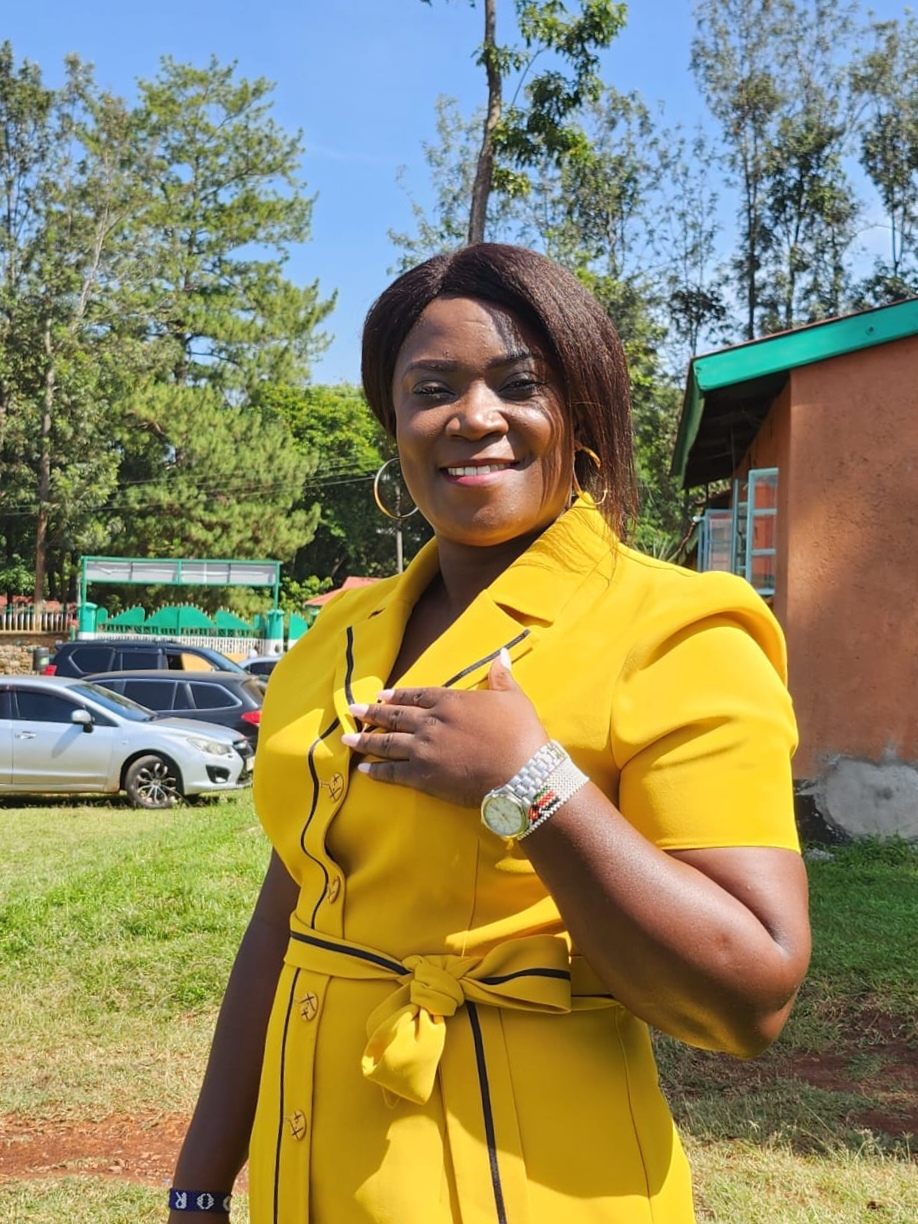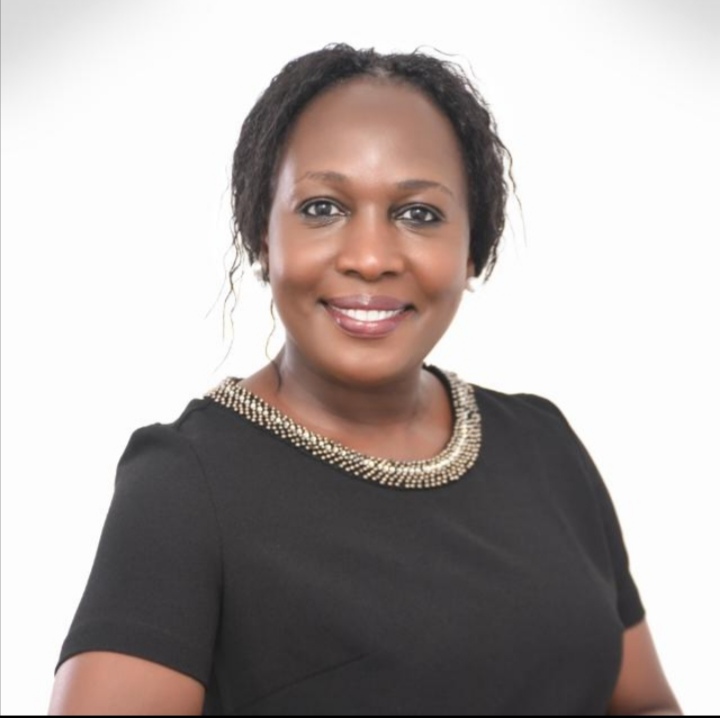Groundbreaking Workshop on AI and Technology-Facilitated Gender-Based Violence at AWiM24
Trending
Tuesday May 13, 2025
Trending

Affirmative action remains a pipe dream.
This feature story explores how patriarchy in society still blocks women from running for political positions.
To be at the helm of leadership in Kenya as a woman remains akin to walking on a tightrope, as the two-thirds gender rule and the push to implement affirmative action remains a pipe dream.
As recent as the latest general election in August 2022, women who dared to put their heads high were treated as second fiddle compared to their male counterparts.
Data from the UNWomen Kenya who analysed women’s performance in the 2022 general election showed that only 1,962 out of 14,137 gazetted candidates eyeing for various positions by the Independent Electoral Boundaries Commission were women.
This is a slight increase from the 2017 general election where only 1,300 women joined the race for various posts.
Despite the low numbers, Kenya has made a stride in the participation and representation of women in leadership. For instance, 3 out of 4 presidential candidates unveiled women as their running mates. This has never occurred in Kenyan political history.
The increased participation of women in the last year’s elections resulted in more women occupying elective seats as compared to other years. Currently, women occupy 201 out of 1882 elective positions. This is in comparison to 172 in 2017 and 145 in 2013.
Moreover, the first Cabinet unveiled by President William Ruto saw the nomination of seven women Cabinet Secretaries. This made up 32 per cent of the appointed Cabinet, an increase from 30 per cent in the 2018 Cabinet appointment by former President Uhuru Kenyatta.
Although there is a notable change in the number of women leaders over the years, the pace is gradual.
This happens despite having various constitutional provisions that aim to end discrimination and inequality in leadership.
For instance, Article 27(3) of the Constitution of Kenya, which was adopted in 2010, states that men and women have the right to equal treatment, including the right to equal opportunities in political, economic, cultural and social spheres. Section 8 of the same Article requires the state to put measures that will ensure not more than two-thirds of members of a legislative house are of the same gender.
To ensure the realization of Article 27, Section 6 calls for special measures such as affirmative action policies that will ensure that marginalised groups are included. Without the enactment of similar provisions, the parliament stands to be dissolved under Article 261 as consequential legislation.
Article 100 of the Constitution requires the Parliament to implement laws that promote the equal representation of marginalized groups, including women, in the legislative house.
Even so, the Kenyan National Assembly still holds the last position in East Africa by having the least number of women in parliament. Currently, there are 82 women members (inclusive of 29 elected MPs, 47 Woman Representatives and 6 nominated members) out of the 349 total members in the National Assembly.
This is below the threshold of 117 women members that are needed for the one-third quota.
According to Silvia Mulama, a gender advocate, under-representation of women at the decision-making table limits addressing most of the issues that concern them and the nation at large.
“The presence of women at the decision-making table is essential. It makes the basis of a well-governed country. A woman can raise disregarded issues that impact the lives of many, for instance, matters affecting a boy child, a teenage mother, and an unemployed citizen among others. Such issues when raised lead to sustainable solutions.” says Ms Mulama

Since their role is essential, Ms Mulama notes that awareness is needed to persuade the patriarchal society to also view women as effective leaders.
“I am happy more opportunities and platforms are opening up for women today. However, we are still suffering from cultural effects where some communities still can’t accept women as leaders. This is common among regions that have male-dominated hierarchies such as Western and Northern Kenya.”
“We focus more on women’s personal lives, rather than their achievements as leaders. However, there are positive changes in communities that have embraced women as leaders,” she added.
One of the progressive measures Kenya has adopted to fill in the leadership gaps is by nominating representatives of various marginalized groups. This has helped to attain gender rule, but only in the County Assemblies and partly Senate.
However, those nominated for these positions face discrimination, not only from their colleagues but from the citizens as well.
Silvia Mulama’s sentiments on breaking the barriers that impede women’s leadership are shared by Victoria Zillah Ung’ai, a special elect member of the Kakamega County Assembly.
“The political space is extreme. As female leaders, we are stereotyped by the system.”
Ms Zillah narrates how her journey to becoming a leader was full of peaks and valleys.
“I became a youth advocate immediately after I finished my college studies in Purchasing and Supplies Management. I have used various platforms to raise the voice of young men and women on issues that concern them.
The advocacy part of her life was a success. She eventually started an organisation in 2016, Youth Leaders Stakeholders, to propagate more youth policies. Among the policies she championed include the current Kakamega County Children’s Policy and Gender Based Violence Act.
Seeing the impact she was making as a policy advocate, she decided to try her luck as a key decision-maker. Ms Zillah joined active politics in 2016. She contested for the Member of the County Assembly seat for Shirere Ward, one of the 60 wards in Kakamega County.
It was then that she was scratched by the sharp claws of a patriarchal society.
“I was the first woman to vie for the Shirere Ward seat since the starting of county governments in 2013. Unfortunately, I lost due to patriarchal and tribal politics, and since I am from the Maragoli sub-tribe, I could not lead in a region that was not my home. I was also dismissed by many because of my gender. Many believed that women never make good leaders.”
“Despite the loss, I became more determined. My heart was in politics more than in the corporate world. In 2022, I resigned from my job at 4G Capital Limited when a political opportunity emerged at the Democratic Action Party of Kenya. I became one of the lead campaigners for the current Kakamega County Deputy Governor Ayub Savula. I used my connections, time and resources across the county to gather votes for the Azimio La Umoja Coalition.” she added.
Due to her vigorous role as a campaigner and a significant DAP-K member, she got nominated by her party as one of the special elect members of the County Assembly. Zillah notes that the nomination did not come easy.
“There is a lot of politics and interests in party nominations. I had to sue my party [DAP-K] because they had shortchanged me. I had sacrificed a lot for the party during the campaigns, only to see those who invested little to none in the entire process ahead of me on the nomination list. I decided to fight for my space.”
Despite being discouraged by many that she would lose the case, she did not give up.
“I won the case. Someone else took it back to court but I won again. That is how I got my nomination, by fighting for what is rightfully mine.”
Ms Zillah’s firmness and confidence have helped her to counter the challenges she faces as a special elect member. She confirms that nominated politicians, more so women, are marginalized. They are discriminated against for what many terms a token position.
However, she states that the current cohort of special-elect members is determined to fight for their positions. Unlike members of previous houses, she believes there is a better working rapport between the current elected and nominated members.
Ms Beverlyne Lilian Osiema is also a special-elect member of the Kakamega County Assembly, nominated under the ODM Party. Although her story is different from Zillah’s, both have a common denominator; gender stereotypes.
Ms Osiema is a former journalist with a working experience of about 10 years. Her love for telling political stories sprouted her interest in participating in Kenyan politics.
She was first nominated in 2017 by the ODM party after she adhered to the party’s conditions. Ms Osiema believes her selection came as a result of her commitment to pushing the party’s agenda. Her continuous loyalty to the party and accomplishments as a leader saw her get nominated for the second time in 2022.
“Being a leader in a male-dominated society is not a walk in the park,” says Ms Osiema. She recalls how she was subjected to gender stereotypes in her first tenure.
In October 2019, she got suspended for violating chapter six of the Constitution on leadership and integrity. This was after she physically defended herself when a male colleague allegedly referred to her and other nominated MCAs as prostitutes. The male MCA was not punished for the utterances.
“The political space is extreme. As female leaders, we are stereotyped by the system. I once defended myself from a male colleague who thought nominated MCAs did not have a right to participate in the house debates. He called us prostitutes.” she said.
“Although I regret how I reacted, I still see the need for women to be respected. After all, whether elected or nominated, we all serve the same role, to represent our people, legislate, and oversight the executive,” she added.
Ms Osiema hopes to vie and win an elective position in future. She wishes that the political environment will someday accommodate more potential female leaders.
Currently, she is using the platform to push for policies that represent women and young girls.
“I hope to campaign and win one day, my current priority is my people, whom I represent. I am starting an initiative to support young mothers from Butere Constituency by providing sanitary towels, diapers and survival life skills.”
Mulama, Zillah, and Osiema believe that a fair and competitive political ground for both men and women is key to achieving more women participation and representation in leadership.
They hope that more focus will point towards empowering women to help them win more elective positions. They also recommend a change in the mindset of voters and other politicians that will come with enlightenment.
“I look forward to a time when nominations will also favour male politicians,” says a smiling Zillah.
With the fast-approaching deadline for the 17 United Nations Sustainable Development Goals, it is alarming that Kenya is yet to have a definitive plan to achieve SDG targets 5.5 and 5.9. Both targets aim at strengthening the participation of women in leadership and decision-making.
With Kenya struggling to enact affirmative action policies that would see equal representation of all populations at the decision-making table, the continuous increase in the number of elected women leaders shows that the country is maturing democratically. However, the electoral system in Kenya should be restructured to embrace gender parity and equality.
This story is part of the African Women in Media (AWiM)/Luminate Young Women in Politics Media Project
We’re not gonna spam. We’ll try at least.

Copyright 2020. African Women In Media
Copyright 2020. African Women In Media
Recent Comments